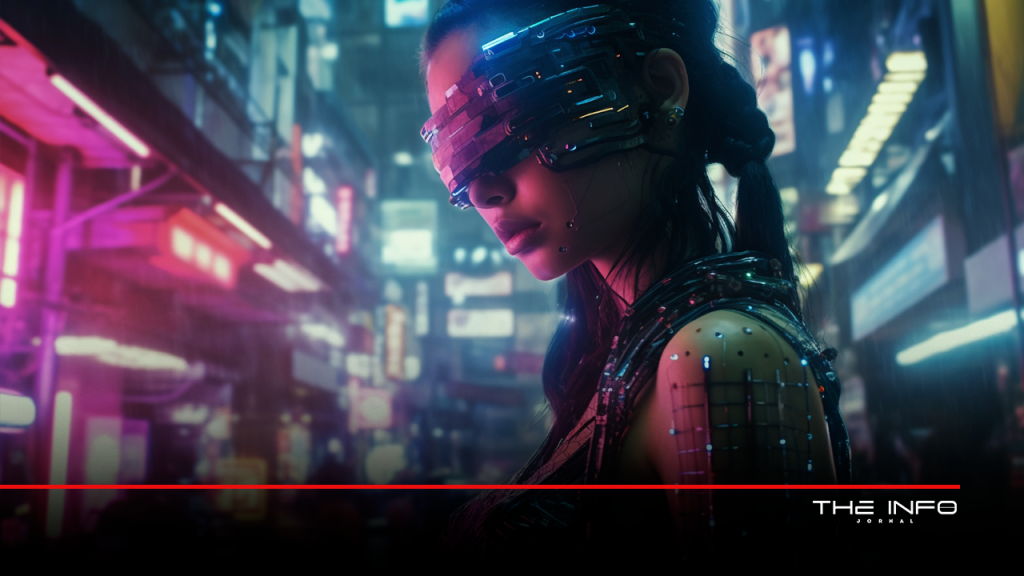Artificial Intelligence (AI) has emerged as a driving force in the gaming industry, revolutionizing player experiences and redefining the boundaries of interactive entertainment. This article explores the transformative impact of AI in gaming, from enhancing gameplay mechanics to shaping personalized gaming experiences.
AI-Powered NPCs

Elevating Game Realism AI-driven Non-Player Characters (NPCs) play a central role in shaping the immersive worlds of modern video games. Powered by sophisticated algorithms, NPCs exhibit lifelike behaviors, adapting to player actions and dynamically responding to changes in the game environment. Whether engaging in conversation, navigating complex terrain, or exhibiting human-like emotions, AI-powered NPCs enhance game realism, immersing players in captivating virtual worlds.
Adaptive Gameplay
Tailoring Experiences to Individual Players AI algorithms analyze player behavior and preferences in real-time, enabling games to adapt dynamically to each player’s unique playstyle. From adjusting difficulty levels to customizing in-game content, adaptive gameplay mechanics ensure that every player enjoys a personalized gaming experience. By leveraging AI-driven insights, game developers can optimize player engagement and retention, fostering long-term relationships with their audience.
Procedural Content Generation
Infinite Possibilities Procedural Content Generation (PCG) algorithms leverage AI to generate vast and diverse game worlds with minimal human intervention. From sprawling landscapes to intricate level designs, PCG algorithms create endless possibilities for exploration and discovery. By automating the content creation process, AI empowers developers to focus on creativity and innovation, delivering rich and dynamic gaming experiences that captivate players for hours on end.
Intelligent Game Design
Enhancing User Engagement AI is revolutionizing game design by enabling developers to create more engaging and immersive experiences. Machine learning algorithms analyze player interactions and feedback, providing valuable insights into game design and user experience optimization. From refining gameplay mechanics to fine-tuning user interfaces, AI-driven design methodologies enhance player engagement and satisfaction, ensuring that games resonate with their target audience.
Dynamic Storytelling
Crafting Personalized Narratives AI-powered storytelling techniques enable games to deliver dynamic and personalized narratives that adapt to player choices and actions. Through branching dialogue systems, narrative AI algorithms generate diverse story paths based on player decisions, ensuring that each playthrough offers a unique storytelling experience. By blurring the lines between gameplay and narrative, AI-driven storytelling immerses players in compelling virtual worlds where their choices shape the course of the story.
AI-Driven Virtual Assistants
Enhancing Player Support Virtual assistants powered by AI technology provide players with real-time support and guidance, enhancing their gaming experience. Whether offering hints and tips during gameplay or providing personalized recommendations for in-game challenges, AI-driven virtual assistants help players overcome obstacles and maximize their enjoyment. By leveraging natural language processing and machine learning, these virtual companions offer intuitive and responsive assistance, enriching the gaming experience for players of all skill levels.
Ethical Considerations

Navigating AI in Gaming As AI continues to play an increasingly prominent role in gaming, ethical considerations surrounding its use become more critical. Game developers must address concerns related to data privacy, algorithmic bias, and player manipulation to ensure that AI-driven gaming experiences are fair, inclusive, and respectful of player autonomy. By implementing transparent AI systems and adhering to ethical design principles, developers can build trust with their audience and foster a positive gaming environment for all players.
Conclusion
Artificial Intelligence is reshaping the gaming landscape, empowering developers to create more immersive, personalized, and engaging experiences for players worldwide. From AI-powered NPCs and adaptive gameplay mechanics to procedural content generation and dynamic storytelling, AI-driven innovations are revolutionizing every aspect of game development. As technology continues to advance, the future of gaming promises even greater levels of creativity, immersion, and innovation, ensuring that players continue to embark on unforgettable journeys in virtual worlds crafted by the power of AI.


 5G and the Future of Mobile Gaming: What Gamers Need to Know <p style=' font-weight: normal;font-size: 16px !important; text-align: left;'> Understand what changes with the arrival of 5G in the world of games and technology </p>
5G and the Future of Mobile Gaming: What Gamers Need to Know <p style=' font-weight: normal;font-size: 16px !important; text-align: left;'> Understand what changes with the arrival of 5G in the world of games and technology </p>  Unveiling the Top Electric Cars: Revolutionizing Sustainable Transportation <p style=' font-weight: normal;font-size: 16px !important; text-align: left;'> Find out which are the most desired options on the automotive market today </p>
Unveiling the Top Electric Cars: Revolutionizing Sustainable Transportation <p style=' font-weight: normal;font-size: 16px !important; text-align: left;'> Find out which are the most desired options on the automotive market today </p>  Harnessing Solar Power: A Comprehensive Guide to Solar Panels <p style=' font-weight: normal;font-size: 16px !important; text-align: left;'> Everything you need to know about generating solar energy at home </p>
Harnessing Solar Power: A Comprehensive Guide to Solar Panels <p style=' font-weight: normal;font-size: 16px !important; text-align: left;'> Everything you need to know about generating solar energy at home </p>